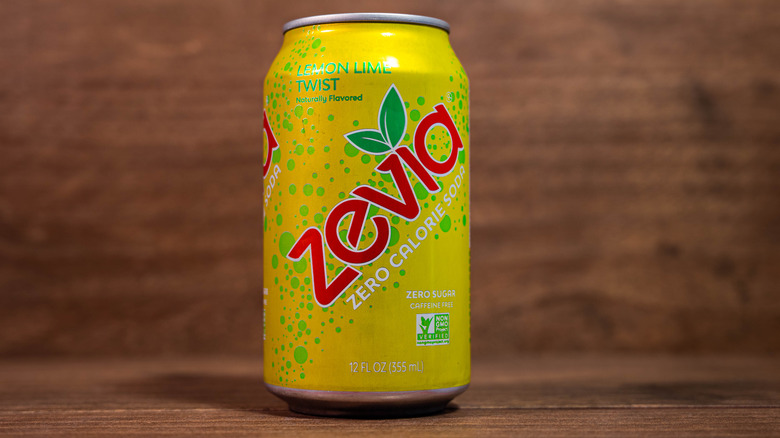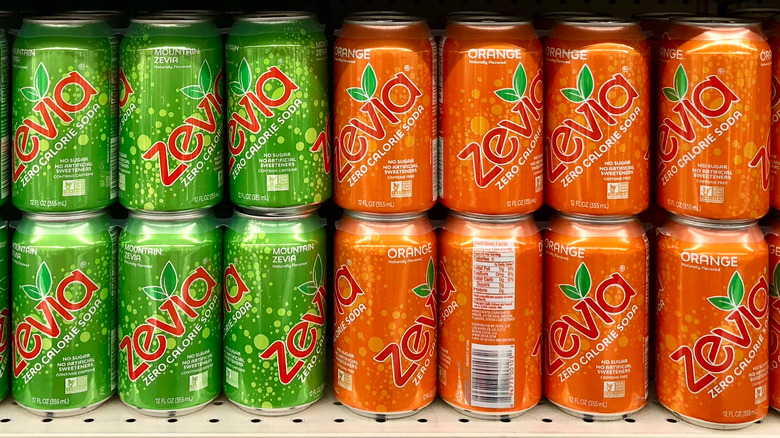
Zevia soda is a low-calorie, sugar-free beverage crafted from all-natural, plant-based ingredients. Offered in a variety of delightful flavors, Zevia provides an alternative to traditional soda. But does it offer any health benefits? Although Zevia isn’t inherently “healthy,” it’s also not detrimental to your health (via Mel Magazine). This is because Zevia lacks significant nutritional value, yet its components are arguably healthier than those found in full-sugar sodas.
Incorporating carbonated water and natural flavors, Zevia is made with citric acid and stevia, a natural sugar substitute extracted from the leaves of the stevia rebaudiana plant, native to South America. Being approximately 200 times sweeter than regular table sugar, stevia has gained popularity as a natural sweetener in the U.S. (via Healthline). While stevia is not deemed unsafe for consumption, limited research exists on its long-term effects as of this writing.
Consume in moderation

Some preliminary animal studies have indicated potential drawbacks associated with prolonged stevia consumption. One 2020 study in mice suggested that consistent stevia consumption for over 16 weeks could result in inflammation of the liver and kidneys, potentially leading to organ damage over time. While these findings are intriguing, animal reactions to certain food products can differ significantly from human responses. “There is simply not enough evidence yet either way as far as damage to kidneys goes with regards to Stevia use,” Jamie Hickey, a certified nutritionist and founder of Truism Fitness, explained to Insider.
Conversely, stevia may offer certain health benefits, such as reduced sugar intake and potential weight loss. This is why experts suggest consuming stevia in moderation, and the same advice applies to Zevia. Although the long-term effects of stevia consumption in humans remain unstudied, little evidence suggests it is actively harmful. Considering all factors, enjoying Zevia soda as an occasional treat seems perfectly acceptable.




